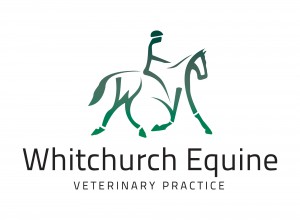Phenylbutazone, Annexe IX and Horses ‘intended for human consumption’.
Horses, ponies and donkeys are considered to be food producing animals in the EU. That means any drugs administered to these animals must state a Minimal Withdrawl time afterwhich the animal may be slaughtered and the meat deemed free of medicinal residues and safe to eat.
Unfortunately due to the present economic situation, the number of horses being slaughtered for human consumption has almost doubled over the last three years, and now represents approximately 1 percent of the UK horse population.
Therefore we cannot ignore the FACT that significant number of horses do enter the food chain each year, though normally for Export trade only.
DEFRA and the Food Standards Agency have been reminding veterinary surgeons that phenylbutazone (Equipalazone® and ProDynam®), and suxibuzone (Danilon®), cannot be used in animals intended for human consumption.
The background to this ban is that when Phenylbutazone was initially licensed, as a veterinary product, no Maximum Residue Limits (MRL) were established. These MRLs determine the Minimum withdrawl time, after which a treated animal can be safely slaughtered, without any residues of administered drug being present in the carcase.
The human medical concerns relating to phenylbutazone being present in the carcase surround the myelotoxic effects of phenylbutazone in humans, carcinogenic, nephrotoxic and hepatoxic effects in laboratory animals, and evidence of mutagenic activity in lymphocytes in human lymphocytes.
However as Phenylbutazone is such a useful Non-steroid Anti-inflammatory Drug (NSAID) for the management of orthopaedic conditions, the drug was licenced but, mindful of food safety issues, restricted to the use in non-food horses only.
So whenever prescribing phenylbutazone or suxibuzone vets must ensure that part II of section IX of the horse passport is signed to exclude the horse from the food chain.
Horses or Ponies treated with ‘Bute’ must not enter the food chain, and their passports must be signed at part II of section IX to indicate that the animal is not intended for human consumption.
This is an irreversible decision. Once confirmed ‘not intended for human consumption’ the horse may never enter the human food chain.
Bute is not only medication that requires Owners to sign part II of the section IX. Other commonly used drugs include:
- Cronxyin (flunixin painkiller)
- Depocillin (penicillin anitbiotic)
- Dexadreson (betamethasone steroid)
- Intra Epicaine (local anaesthetic used in nerve blocks)
In fact it may be IMPOSSIBLE to find a PET horse QUALIFIED to enter the human food chain considering the number of medications that exclude them!
Due to recent publicity surrounding this issue ALL carcasses are now being tested for phenylbutazone residues. DEFRA and the FSA have indicated a desire to prosecute individuals who ignore the Horse Passport regulations.
The Equine Passport exist to protect public health and ensure that veterinary medication continues to be available.
Further information about Horse Passports is available from the Horse Passports team within Defra – tel: 020 7238 6039, email: horse.passports@defra.gsi.gov.uk, http://www.defra.gov.uk/wildlife-pets/pets/horses/
